Microsoft’s New Channel Chief Rodney Clark: 6 Things You Need To Know
‘I would want the ecosystem to know that not only are they getting a familiar face, they’re getting someone who’s been in the ecosystem for a while, and then they’re getting somebody who’s genuinely excited about this destination role and dream job,’ Clark tells CRN.
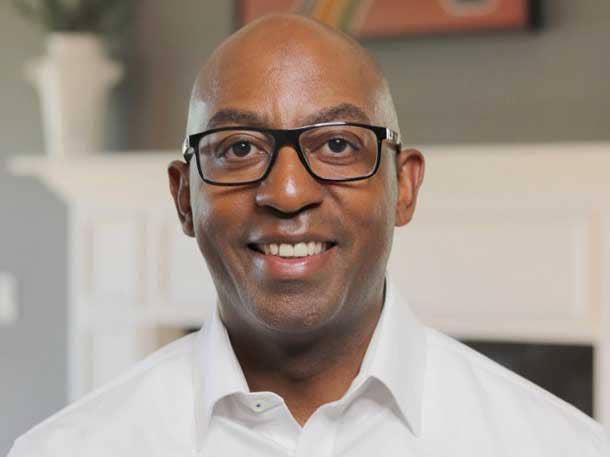
For Rodney Clark, becoming Microsoft’s newest channel chief – his “destination role” – is the culmination of a decade in career planning.
“The last 10 years of my career development plan at Microsoft, I’ve had this role front and center,” Clark, a 23-year Microsoft veteran, told CRN in an exclusive interview. “I would want the ecosystem to know that not only are they getting a familiar face, they’re getting someone who’s been in the ecosystem for a while, and then they’re getting somebody who’s genuinely excited about this destination role and dream job.”
Microsoft today announced that Clark, who’s served as corporate vice president of IoT and mixed reality sales for the last eight months, will take the channel chief position effective April 1, when he becomes corporate vice president of global channel sales. He will replace Gavriella Schuster, who’s leaving the position after five years to focus on business development and furthering the cause of diversity and inclusion, according to the company.
[RELATED: Microsoft’s New Channel Chief Rodney Clark: 6 Things You Need To Know]
“I’ve always thought about the ecosystem and the role that partners play in Microsoft’s success and in our customers’ success,” Clark said. “We’re helping economies transform through our partners, we’re helping companies transform through our partners -- while we’re also helping them. By virtue of being involved and engaged in this ecosystem, I’ve always felt that there was a broader role that I can play to help enable that. And I’ve always seen myself and envisioned myself in this role, where I can be that face of Microsoft to the channel and help continue to drive transformation.”
Here are six interesting things to know about the new Microsoft channel chief.

Clark’s Views On Partnering
More of Clark’s views on partners can be gleaned from the “Ultimate Guide to Partnering” podcast that he did last year with Ultimate Partnerships founder Vince Menzione, his former colleague who spent almost nine years as Microsoft’s general manager of U.S. public sector partner sales and strategy until 2016.
Clark’s IoT and mixed reality sales team works with more than 2,400 Microsoft partners.
“Partners are critical in our business,” Clark said during the podcast, which was released last August. “And I say that every single time that I have an opportunity to say it. The work that we do with our ecosystem to…implement these solutions with our customers is just phenomenal. Our partners are engaged in upwards of 90 percent of our IoT projects, and this is this is key and critical for us.”
During the coronavirus pandemic, Microsoft’s IoT partners increasingly worked with other partners on IoT deployments or projects.
“We’re seeing partners come together proactively share their leads with each other, and ultimately respond to this customer request of acceleration,” Clark said. “I’m hoping that that this is a new norm for how we partner and how we engage in a space like IoT that brings an incredible amount of business value, because it is working right now. And we’re delivering value and efficiency and results to customers at a faster pace as a result.”
For partners to be successful in an age of transformation, they have to know the value that they bring to customers, Clark said.
“They have to know their sweet spot,” he said. “You can’t be all things in the auto industry if you’ve forever and always built something in manufacturing. They have to know what drives their P&L, because our business, IoT, is all about transformation. And, in many ways, this push that we’re in in intelligent cloud is about transformation.”
Successful partners also must have a “people plan,” according to Clark.
“You’ve heard our company executives talk about ’tech intensity’ and the fact that we have companies that were not traditionally software companies, companies that weren’t traditionally cloud companies, that all of a sudden…are,” Clark said. “It’s creating a shortage of architects, of engineers in the field. And so these companies…have to have a strategy around how they continue to retain their talent, how they recruit talent to help make them better, to help make them viable in this next phase.”
Partners also must have a strategy around architecture and how they can technically leverage the legacy work that they’ve built for years and integrate new cloud platforms and capabilities.
“You have to have a strategy around your own internal technology and use of it, and that has to then connect to how you incorporate that into the platforms that you’re building that’ll serve customers,” Clark said.
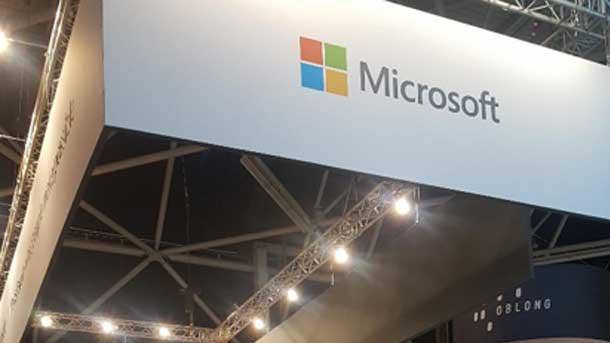
His Microsoft Experience
Clark became Microsoft’s general manager of IoT in 2013 after serving as general manager of its Samsung alliance. He held that role for four years before being promoted to vice president of IoT and mixed reality sales in 2017 and then corporate vice president eight months ago.
“I am passionate about transforming businesses, developing people, and lending my experience and voice to emerging topics,” Clark’s LinkedIn profile states. “As corporate vice president of the worldwide Internet of Things and mixed reality sales at Microsoft, I am fortunate I get to do all three. I lead a talented team that builds, drives, scales, and accelerates growth and innovation with our partners and customers – from edge to cloud.”
During his more than two decades at Microsoft, he said he’s had the “privilege of talking with technical and lay audiences of all sizes on topics spanning digital transformation, organizational growth and leadership, partnerships and partnering, and diversity, equity and inclusion.”
“Among the most rewarding part of this role is developing and connecting leadership talent in a highly competitive and technical talent landscape,” his LinkedIn Page states.
When Clark first joined the company, he put in eight years as a director and senior director in various roles involving global sales strategy and sales leadership with quota responsibility in the southern and eastern portions of the United States, and in business development in Microsoft’s hardware division, managing development and engineering teams and sales management within OEM sales.
In 2006, Microsoft named Clark general manager of seminar sales and event marketing. The business had been “stagnant,” and the company’s leadership team was looking to redefine it as a true sales-aligned business, according to Clark’s LinkedIn page.
Clark was chosen to lead the Microsoft Across America Sales and Technical Evangelism team and redefine the business. He served as an IT, developer and partner evangelist as the face of Microsoft in the United States, and he scaled its face-to-face and online event and logistics model with a 120-person organization, $10 million marketing budget and $25 million operating budget.
From 2009 to 2010, Clark was general manager of Microsoft’s worldwide public sector business for small and midsized government, education and healthcare institutions, leading strategy development and execution for the $1.4 billion business. He managed telesales, online sales, channel development and marketing with a 40-person team.
Clark was general manager of Microsoft’s global operations from 2010 to 2011, leading a 4,000-person, global small and medium business organization. He focused on process development, thought leadership, strategic direction and operational capability to drive customer and partners relationships and revenue with a $5 million operating budget.
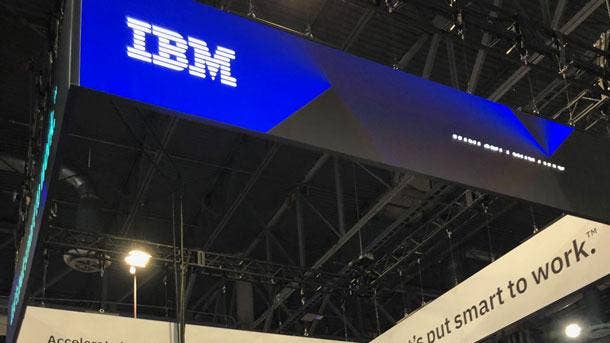
Clark Grew Up In An ’IBM Family’
Clark came to Microsoft in 1998 after starting his professional career at IBM, where he held roles as client executive and sales and marketing manager for eight years.
He grew up in an “IBM family” – his father retired from IBM after 42 years there, and his mother and stepmother both worked for IBM.
“I vowed to never ever work for IBM, because I grew up with their parties, there’s all these IBM people over,” Clark said during the “Ultimate Guide to Partnering” podcast. “It’s probably how my kids feel about Microsoft right now.”
Growing up in the San Francisco Bay Area, Clark said he was “maniacally focused” on being a professional ice hockey player.
“I had vowed never to go into technology at all,” Clark said.
He was playing with a semi-professional hockey team in Fresno, Calif. – where he attended college at California State University, Fresno -- and saw a paid summer internship opportunity at IBM.
Clark was living in an apartment, short on funds and had to call home and hit up his dad for rent money.
“And he’s like, ’Hey, you know son, get a job,’” Clark said. “So I’m like, ’Look, I’ve got a plan. I actually am just going to go apply at IBM.’”
Clark figured that when he didn’t get the internship, it would get back to his dad, who would be more forthcoming with rent money, because Clark put in the effort.
“Well, I’ll be darned if I didn’t get the job offer,” Clark said. “But it was the coolest thing because it...opened up my eyes actually to this world of technology. It exposed me to a world of technology that I had never seen before, and I just got fascinated with devices and technology. That journey and passion started a long time ago very unintentionally, but it hasn’t always been an easy road being an African-American in a predominantly white male industry.”
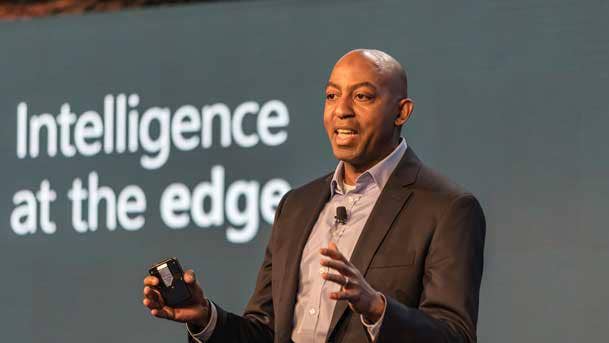
On Being An African American In Tech
Clark told Menzione that he was fortunate to have a father in a corporate executive function who taught him some valuable lessons about what to expect being a Black executive coming up in technology and in a corporate environment.
In a “Check It Out!” podcast with Washington’s Sno-Isle Libraries last May, Clark talked diversity and inclusion in the technology industry and at Microsoft.
Black or African American employees represent 4.9 percent of Microsoft’s U.S. workforce in 2020 – up 0.3 percent from 2019, according to Microsoft’s Global Diversity & Inclusion Report 2020 released in October. Black or African American employees account for 2.9 percent of Microsoft managers and 2.6 percent of directors.
The industry and Microsoft still have a “long way to go,” according to Clark.
“Seeing that representation in technical roles or these biz dev roles that lead to technical outcomes, we have a long way to go,” he said. “I’d like to see more black CEOs. And I know that the only path is to ensure that we have just a large group of technically competent black leaders coming up through the ranks of all companies. For me, that’s an area that I am personally putting some time and some effort behind, and I’m happy to say that my company is supporting me in that effort as well.”

Clark’s Boardroom Experience
Clark sits on the boards of directors for two companies: West Monroe and Entegris.
Chicago-based West Monroe, a business and technology consulting, appointed Clark to the board of the 100 percent employee-owned company last November.
“As an innovator and a leader of a large ecosystem of technology partners, Rodney Clark brings insight and perspectives that are highly relevant to the work we do for clients, turning technology into tangible business impact,” West Monroe chairman and CEO Kevin McCarty said at the time. “In addition to insight about the technology and strategies driving today’s businesses, he also has an exemplary track record for building large, high-performing organizations and fostering the collaboration necessary to drive success, a core element of West Monroe’s strategy to differentiate in the consulting profession.”
In February, Clark was named to the board of Billerica, Mass.-based Entegris, a supplier of advanced materials and process solutions for the semiconductor and other high-technology industries.
He contributes “significant technology experience to the boardroom, as well as deep expertise in driving customer engagement and building strategic partnerships,” Bertrand Loy, Entegris’ CEO, said when Clark’s appointment was announced. “Our board will benefit from his wealth of experiences, and I look forward to working with him as we continue to bring new and advanced technology solutions to the market, in close collaboration with our customers.”
Clark also sits on the board of trustees of the Middlesex School as a parent of a graduate and current student of the independent day and boarding high school in Concord, Mass. He is an advisor to the Seattle Children’s Museum’s board and the Craig School of Business at his alma mater, California State University-Fresno.
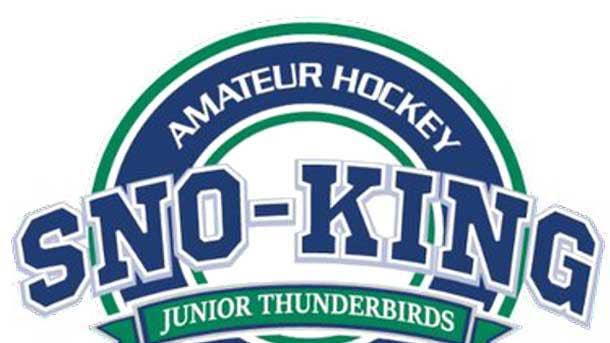
Hockey Dad And Coach
Still an avid hockey fan, Clark has worked to impart that love for the sport by helping to develop young hockey players in the Sno-King Amateur Hockey Association (SKAHA) for more than two decades.
Clark has guided teams to six state championships, two regional championships and seven tournament victories, according to SKAHA’s website, and he’s also mentored and sponsored players who went on to play junior, college and semi-professional hockey. Both his daughter and son have played for SKAHA teams.
“The goal is to get kids to fall in love with this great sport,” Clark told SKAHA. “Our goal as coaches is to foster this by creating a fun, supportive environment for learning and developing. When kids love the game, then they’ll always play at and reach their potential.”